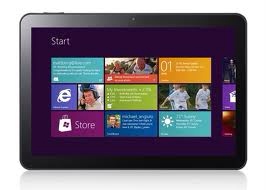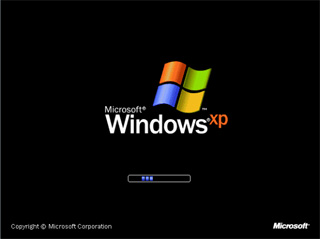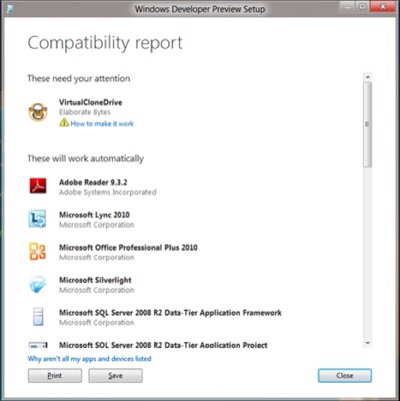 Research firm Forrester has conducted a survey that supposedly reveals that consumer interest in Windows-based tablets–once quite high–is now tanking. Forrester is concluding that Microsoft has therefore missed the opportunity to compete strongly with the iPad, since the first serious Windows-based tablets won”t show up until sometime next year when Windows 8 ships.
Research firm Forrester has conducted a survey that supposedly reveals that consumer interest in Windows-based tablets–once quite high–is now tanking. Forrester is concluding that Microsoft has therefore missed the opportunity to compete strongly with the iPad, since the first serious Windows-based tablets won”t show up until sometime next year when Windows 8 ships.
If I were a Microsoft honcho, these results wouldn’t worry me much, for several reasons…
Tag Archives | Operating Systems
Windows 8 Installation Plans Revealed
Why do people choose not to upgrade to the newest version of Windows? In plenty of cases, it’s because they don’t want to deal with the hassle of the upgrade process. In a new blog post, Microsoft has outlined its plans for how upgrades to Windows 8 will work. They’re ambitious, involving a Web-based system that checks a PC and its apps for Windows 8 compatibility and can either install the new OS on the fly or create a DVD or thumb drive-based install.
It’s not going to lure everyone who’s reluctant to upgrade–for one thing, you’ll only be able to perform a full upgrade, with existing apps remaining in place, on Windows 7 machines. But if it works as planned, it sounds nifty, and should be a good starting point for versions of Windows beyond 8.
No comments
Android Updates: Assume Nothing
Over at The Understatement, a revealing info graphic about Android phones (and iPhones) and the situation with software updates. Overall, it’s ugly for Android owners…
The announcement that Nexus One users won’t be getting upgraded to Android 4.0 Ice Cream Sandwich led some to justifiably question Google’s support of their devices. I look at it a little differently: Nexus One owners are lucky. I’ve been researching the history of OS updates on Android phones and Nexus One users have fared much, much better than most Android buyers.
No comments
Why Would Anyone Use Windows XP Today, Anyhow?
 As the world celebrates–or at least acknowledges–the tenth anniversary of Windows XP, I wondered why so many people continue to use an operating system that dates from an utterly different era in the history of personal technology. So I conducted a quick survey to ask XP users…well, to ask them why they’re XP users, and whether they intend to continue on with the OS forever. Bottom line: A plurality of them use it because it’s what their employers provide. But most of them seem to be reasonably okay with that.
As the world celebrates–or at least acknowledges–the tenth anniversary of Windows XP, I wondered why so many people continue to use an operating system that dates from an utterly different era in the history of personal technology. So I conducted a quick survey to ask XP users…well, to ask them why they’re XP users, and whether they intend to continue on with the OS forever. Bottom line: A plurality of them use it because it’s what their employers provide. But most of them seem to be reasonably okay with that.
(Standard disclaimer: This was an informal survey, and the results reflect only the experiences and opinions of the people–almost 900 of them–who happened to take it. I’m not claiming their responses map to the world at large.)
32 comments
The Life and Times of Windows XP
 If you’d been alive in 1924 and had enjoyed the comedy stylings of a young Vaudevillian named George Burns, you never would have believed he’d still be packing them in seventy years later. In 1963, you might have dug the music that Mick Jagger and Keith Richards were making, but the idea they’d still be touring almost forty-five years later would have sounded insane. Those of us who watched Dennis Eckersley pitch for the Red Sox in 1978 would have scoffed at the notion that he’d be playing for Beantown once again in 1998.
If you’d been alive in 1924 and had enjoyed the comedy stylings of a young Vaudevillian named George Burns, you never would have believed he’d still be packing them in seventy years later. In 1963, you might have dug the music that Mick Jagger and Keith Richards were making, but the idea they’d still be touring almost forty-five years later would have sounded insane. Those of us who watched Dennis Eckersley pitch for the Red Sox in 1978 would have scoffed at the notion that he’d be playing for Beantown once again in 1998.
And then there’s Windows XP. The press release announcing its release on October 25th 2001 called it “Microsoft’s Best Operating System Ever.” A decade later, so many people still agree with that assessment that it remains the planet’s most pervasive desktop operating system.
Nobody would have been prescient enough to predict that Windows XP would be flourishing so many years after its debut. Not Microsoft. Not consumers and businesses. Not the analysts who get paid to know where technology is going. And certainly not me.
No single factor explains XP’s astonishing longevity. The most obvious one, of course, is the failed launch of 2007’s Windows Vista, an upgrade so lackluster that many PC users simply rejected it, instinctively and intelligently. But I think you also have to give XP credit for being just plain good, especially once Microsoft released Service Pack 2 in 2004. And desktop operating systems, from any company, simply aren’t as exciting as they were in the 1990s; people are less likely to want a new one every couple of years, and more likely to drive the one they’ve got into the ground.
95 comments
The Galaxy Nexus and Ice Cream Sandwich Are Official
The Android world has a new flagship phone, and Android 4.0, aka Ice Cream Sandwich, is finally official. In Hong Kong, Google and Samsung have announced the Galaxy Nexus, the first phone to run ICS. Here’s a video about it:
The Galaxy Nexus may be the ultimate Android handset to date–if so, it makes the reign of the Motorola Droid RAZR, which was announced Tuesday morning, the shortest on record.
The Nexus has a 4.65″ 720p display, 4G, and NFC capability, and it’s got the teardrop-shaped case that people thought the iPhone 5 would sport. But the real news is Ice Cream Sandwich. It owes a lot more to Honeycomb, the tablet-friendly version of Android, than it does to Gingerbread, the most recent release for phones. It ditches the physical buttons, has thumbnails for multitasking, lets you unlock your phone via facial recognition, and generally looks slick.
I’m hoping it’s the first phone version of Android that doesn’t feel like it was created by nerds who don’t know much about interface design–and that the stuttering problem which This is My Next’s Vlad Havov noticed when he tried out the Nexus disappears before the phone ships.
More thoughts to come…
No comments
Fake Battery Apps Invade Androidland
More evidence that Android is the Windows of mobile operating systems: It’s under attack by sleazeware. PCWorld’s Tom Spring reports:
Brandt says that one Android battery app, called both Battery Doctor and Battery Upgrade, is particularly problematic: Not only does it not upgrade a battery or extend a charge, but when it’s installed and unlocked, it harvests the phone’s address book, the phone number, the user’s name and email address, and the phone’s unique identifying IMEI number. With a phone user’s name, IMEI, and wireless account information, an attacker could clone the phone and intercept calls and SMS messages, or siphon money from a user by initiating premium calls and SMS services. Once the battery app is installed the program sends the phone ads that appear in the drop down status bar of the phone at all times – whether the app is running or not. Lastly it periodically transmits changes to the user’s private information and phone-hardware details to its servers.
18 comments
WebOS’s Moment of Truth
According to AppleInsider’s Daniel Eran Dilger, the fate of HP’s WebOS may be decided this week:
While webOS is now largely finished and its hardware was ready to sell, HP’s cancellation of the hardware side of the equation, motivated by dismal sales, means that a spinoff of Palm would result in a return to square one for the group, forcing it to formulate a new licensing business in a market where even Microsoft has had a very difficult time assembling a viable ecosystem of mobile licensees.
I hope it lives, even though I’m afraid it’ll break my heart again.
2 comments
Microsoft on the Windows 8 Start Menu
Curious what’s on the mind of the people who are creating Windows 8? Microsoft’s Windows team blogs the thinking behind its decisions in posts that are sometimes remarkably detailed. It’s published a post that’s the first of a series on the Windows 8 Start menu, which has nothing to do with any previous incarnation.
I think that Microsoft is making a mistake by removing the classic Start menu from Windows 8 altogether. If you’re in the desktop running conventional Windows programs and click Start, you get instantly dumped out into the very different world of Metro. It’s a jarring and unpleasant experience, even if you like Metro, and I think that Windows 8 skeptics are going to see it as an argument against upgrading. But I’m still glad that Microsoft is explaining why it’s doing what it’s doing.
No comments
Amazon to Buy Palm?
VentureBeat’s Devindra Hardawar is reporting that Amazon.com is seriously interested in buying WebOS from HP, the company that bought Palm for $1.2 billion and then killed the TouchPad after six weeks.
The Kindle Fire is powered by Android, but it’s been heavily customized by Amazon to the point where you can barely tell. By purchasing the remnants of Palm, Amazon would have free rein to redesign webOS to its own liking, and it would be able to further differentiate its Kindle devices from the slew of Android tablets in the market.
It would be swell if the WebOS saga ended happily, and I can’t think of a better candidate than Amazon to figure out how to do well by the software. Then again, I once thought that HP could be a good home for it, too…

